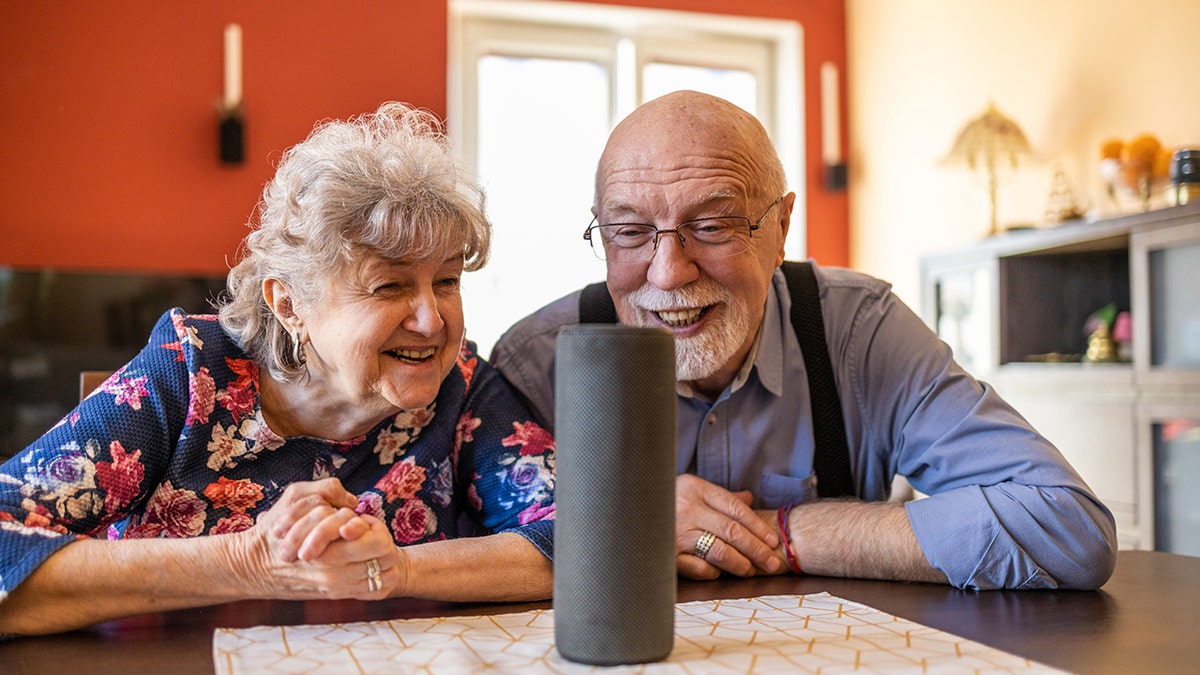Smartphone use could reduce dementia risk in older adults, study finds
The first generation that has been exposed consistently to digital technology has reached the age where symptoms of dementia tend to emerge.
Some have claimed that digital technology could negatively impact cognitive abilities, but researchers from Baylor University have discovered just the opposite.
“You can flip on the news on just about any day and you’ll see people talking about how technologies are harming us,” said study co-author Michael Scullin in a press release.
DEMENTIA RISK CONNECTED TO CANNABIS-RELATED HOSPITAL VISITS, SAYS STUDY
“People often use the terms ‘brain drain’ and ‘brain rot,’ and now ‘digital dementia’ is an emerging phrase. As researchers, we wanted to know if this was true,” Scullin said.

The researchers analyzed past studies to determine the impact of technology on mental aging. Their findings, which were published in the journal Nature Human Behaviour, suggest that digital technologies can actually preserve cognitive abilities.
AMERICA’S SENIORS ARE VULNERABLE TO THESE DIGITAL THREATS, EXPERTS WARN
For the meta-review, researchers analyzed more than 136 studies that included 400,000 adults, with an average of six years of follow-up data.
The team concluded that the use of digital technology correlates with a 58% lower risk of cognitive impairment, even after adjusting for gender, age and education level.

One contributing factor, according to Scullin, could be the cognitive challenges that older adults face when interacting with technology.
CLICK HERE TO GET THE FOX NEWS APP
“One of the first things that middle-aged and older adults were saying is that ‘I’m so frustrated by this computer. This is hard to learn,'” he said in the release.
“That’s actually a reflection of the cognitive challenge, which may be beneficial for the brain even if it doesn’t feel great in the moment.”
ALCOHOL LINKED TO BRAIN DAMAGE FOR HEAVY DRINKERS, STUDY FINDS
Technology can be cognitively challenging because it is always changing, forcing users to learn and adapt, the researchers noted. This “exercises” the brain and helps keep it sharp.

Dementia diagnoses often involve loss of ability to independently perform daily tasks, such as taking pills, keeping track of appointments and navigating directions, per the Alzheimer’s Research UK website.
Digital tools like web calendars, phone reminders and navigation apps can allow for greater independence in older adults.
CLICK HERE TO SIGN UP FOR OUR HEALTH NEWSLETTER
The study found that “digital scaffolding” – the process of using these tools to perform daily tasks – “facilitates better functional outcomes in older adults while general cognitive functioning declines.”
One highly debated aspect of digital technology’s effect on our brains is the use of social media, but according to the researchers, it’s not all bad.

Another benefit of digital technology, according to experts, is the ability for aging adults to maintain social connections, which has been linked to a decreased dementia risk.
“Now you can connect with families across generations,” Scullin said.
For more Health articles, visit www.foxnews.com/health
“You can not only talk to them, you can see them. You can share pictures. You can exchange emails — and it’s all within a second or less. So that means there’s a greater opportunity for decreasing loneliness.”
